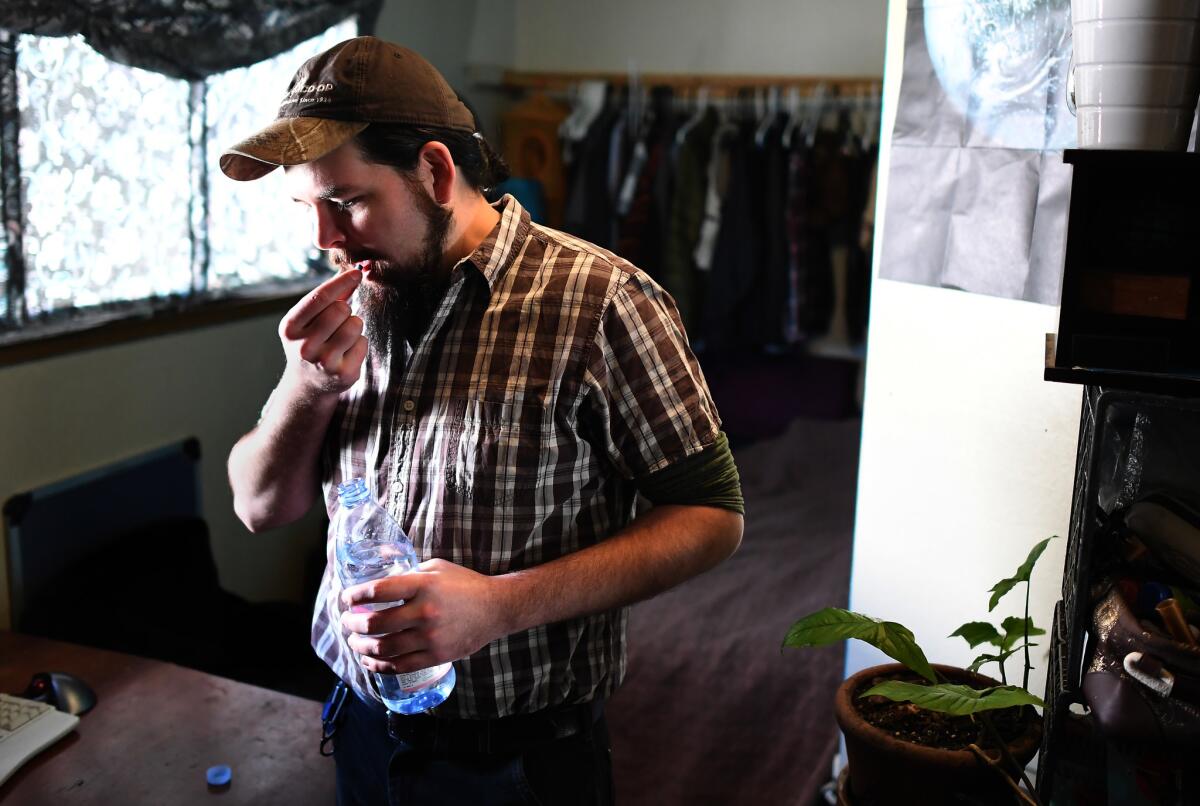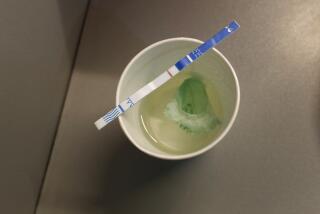HIV prevention drugs will be available without a prescription in California

California will expand access to HIV prevention drugs by allowing pharmacies to offer the medications without a prescription under a law signed by Gov. Gavin Newsom on Monday.
Senate Bill 159 by Sen. Scott Wiener (D-San Francisco) and Assemblyman Todd Gloria (D-San Diego) allows pharmacists to dispense pre-exposure prophylaxis, known as PrEP, and post-exposure prophylaxis, known as PEP, in a way similar to birth control and emergency contraceptives. The law will also bar insurance companies from requiring prior authorization before the HIV prevention drugs are provided.
“Recent breakthroughs in the prevention and treatment of HIV can literally save lives,” Newsom said in a statement. “All Californians deserve access to PrEP and PEP, two treatments that have transformed our fight against HIV and AIDS. I applaud the Legislature for taking action to expand access to these treatments and getting us close to ending HIV and AIDS for good.”
Studies have shown that people who take the daily medication PrEP dramatically reduce their chances of being infected by an HIV-positive person or from intravenous drug use. For a person who has been exposed to HIV, a pharmacist can dispense PEP, a 28-day supply of daily medication that has been shown to be highly effective.
Supporters of the bill said it removes barriers for people to take the drug, such as having to wait for a doctor’s appointment, which could take weeks. The California Health Benefit Review Program estimated that the bill would result in more than 700 people obtaining the HIV prevention drugs, leading to 25 fewer cases of new HIV transmissions in the first year of the law‘s implementation.
Wiener made news in 2014 when, as a member of the San Francisco Board of Supervisors, he disclosed that he was taking the drug Truvada to protect himself from HIV.
“I went on PrEP to further protect and take personal responsibility for my health,” Wiener wrote in a 2014 Huffington Post column. “I’m HIV-negative, and I want to remain that way.”
Now a senator who chairs the LGBTQ caucus, Wiener said expanding access to the drug will keep more Californians HIV-negative.
“To end new HIV infections, we must dramatically expand access to PrEP and PEP, yet far too many Californians who need these drugs struggle to access them,” Wiener said.
The U.S. Preventive Services Task Force recommended that doctors offer daily HIV prevention pills to healthy people who are at high risk for contracting HIV. However, few of those who meet the criteria obtain a prescription for the drug. In California, the number of new diagnosed cases of HIV has risen by 0.8% — from 4,752 cases in 2013 to 4,791 in 2017. In Los Angeles County, there were 1,731 newly diagnosed cases of HIV in 2017, according to the most recent California HIV Surveillance Report published by the California Department of Public Health. That was down from 1,818 in 2013.
Equality California Executive Director Rick Zbur said access to the drug is particularly limited in rural communities and among minorities.
“But with Gov. Newsom’s signature, SB 159 is a giant step forward in getting to zero transmissions, zero deaths and zero stigma,” Zbur said.
Newsom also signed two other healthcare bills on Monday. AB 824 by Assemblyman Jim Wood (D-Healdsburg) will prohibit financial agreements between brand-name drug companies and their rivals producing generics that lead to a delay in lower cost prescriptions coming to market. California is the first state to pass legislation attempting to end a practice known as “pay for delay.”
“California will use our market power and our moral power to take on big drug companies and prevent them from keeping affordable generic drugs out of the hands of people who need them,” Newsom said. “Competition in the pharmaceutical industry helps lower prices for Californians who rely on lifesaving treatments.”
SB 464 by Sen. Holly Mitchell (D-Los Angeles) requires perinatal healthcare workers to complete implicit bias training to improve preventable maternal mortality rates among black women. The law will also require additional data collection by the California Department of Public Health on pregnancy-related deaths.
“California is sending a clear message that discrimination has no place in our healthcare system,” Newsom said. “We know that black women have been dying at alarming rates during and after giving birth. The disproportionate effect of the maternal mortality rate on this community is a public health crisis and a major health equity issue.”
More to Read
Start your day right
Sign up for Essential California for news, features and recommendations from the L.A. Times and beyond in your inbox six days a week.
You may occasionally receive promotional content from the Los Angeles Times.







